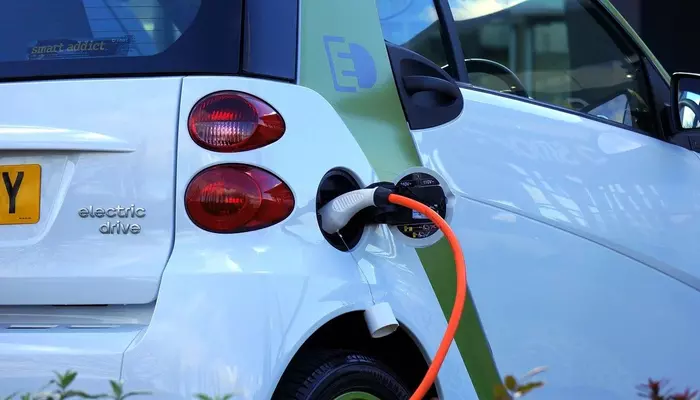
In recent times, the electric vehicles have gained a traction like never before. Given the extreme rise in the prices of petrol and diesel, electric vehicles might seem the perfect alternative for transportation and intra-city mobility. However, the technologies and infrastructure for electric vehicles are still in nascent stages in India, which is creating some confusion and resistance among buyers for a faster adoption of electric vehicles.
To meet this challenge, both the central government as well as few state governments have come up with a few subsidies and rebates, in order to give a significant push to the sales of electric vehicles. These subsidies are meant for both the buyers as well as car manufacturers, which are encouraging for both of them.
Following are the full details of government subsidy for electric vehicles in India, which the buyers of electric vehicles will be getting on their purchase:
Central Government
Under the FAME-II (Faster Adoption and Manufacturing of hybrid and Electric vehicles) scheme, the Department of Heavy Industries of Central Government has come up with few strategies for faster adoption of electric vehicles.
The Central Government will be giving a subsidy of Rs. 15,000 per kWh of battery capacity for two-wheelers, with the subsidy capped at 40 per cent of the cost of the vehicle. For four-wheelers, the subsidy is Rs. 10,000 per kWh of battery capacity, with the maximum permissible amount being Rs. 1.5 lakh. This rebate is for only those electric vehicles which fulfill the criteria of FAME-II scheme.
In addition to this scheme, the electric vehicles also attract a much lower Goods and Service Tax of 5 per cent, while they are also exempted from registration and renewal fees. Also, under Section 80EEB of Income Tax Act, the buyers who are wishing to take a loan on electric vehicle purchase can also get tax benefits of up to Rs. 1.5 lakh. And lastly, and one of the most important ones, the road tax and registration costs are completely waived off.
Maharashtra Government
As per the revisions carried out in its EV policy in 2021, the Maharashtra Government offers an additional subsidy of up to Rs. 2.75 lakh for four-wheelers. This subsidy includes a basic subsidy of Rs. 1.50 lakh, Rs. 25,000 scrappage incentive of old car and an ‘early bird’ subsidy of Rs. 1 lakh if you wish to purchase an EV on or before 31st December, 2021.
In case of two-wheelers too, the total incentive accumulates to around Rs. 44,000, which includes Rs. 10,000 of basic subsidy, Rs. 7,000 scrappage incentive of old two-wheeler, Rs. 15,000 ‘early bird’ incentive and Rs. 12,000 worth of other incentives.
In addition to all these incentives, all the electric vehicles are free of registration and road tax costs too.
Delhi Government
The Delhi Government was one of the first-movers in giving a subsidy to electric vehicle buyers. For four-wheelers, the government is offering a basic subsidy of Rs. 10,000 per kWh of battery capacity, with a capping of up to Rs. 1.5 lakh. However, this scheme is applicable only for the first 1,000 electric four-wheelers which will be registered in the state, since the announcement of the scheme. The same subsidy for two-wheelers is Rs. 5,000 per kWh, with the maximum subsidy limited to Rs. 30,000.
In addition to this, all electric vehicles have been kept away from registration and road tax costs.
Gujarat Government
The Gujarat government has more or less similar levels of subsidies for both two-wheeler and four-wheeler EV buyers. However, it is applicable to a bigger buyer base – first 20,000 owners of four-wheeler and first 1.1 lakh buyers of two-wheeler electric vehicles.
The subsidies for both two-wheeler and four-wheeler electric vehicles is Rs. 10,000 per kWh. However, this subsidy is capped at Rs. 20,000 for two wheelers and Rs. 1.5 lakh maximum for four wheelers. In addition, here in Gujarat too, all electric vehicles are exempted from registration and road tax costs.
Meghalaya Government
Meghalaya might be the least populous state with least number of vehicle registrations in this list of states offering electric vehicle subsidies. However, it has got the advantage of early adaptors of this strategy in north-east Indian region. Meghalaya Government too revised its EV policy for 3,500 two-wheeler and 2,500 four-wheeler EV buyers since the announcement of this strategy.
Under this strategy, apart from being exempted of road tax and registration costs, two-wheeler and four-wheeler EVs will get an additional subsidy of Rs. 10,000 per kWh and Rs. 4,000 per kWh respectively. Also, in the duration of this policy, the Meghalaya Government will be offering free land and lower electricity tariffs to both public sector and private sector companies for setting up a stronger infrastructure.
Karnataka Government
Unlike other state governments mentioned above, Karnataka Government isn’t offering any additional benefits over what the central government is offering. However, it has vowed to make the infrastructure stronger by offering subsidies for manufacturing of EV components and battery.
Andhra Pradesh Government
Like its Karnataka counterpart, the Andhra Pradesh Government intends to strengthen the infrastructure for electric vehicles by setting up 400 new charging stations.
ALSO READ:
You must be logged in to post a comment Login